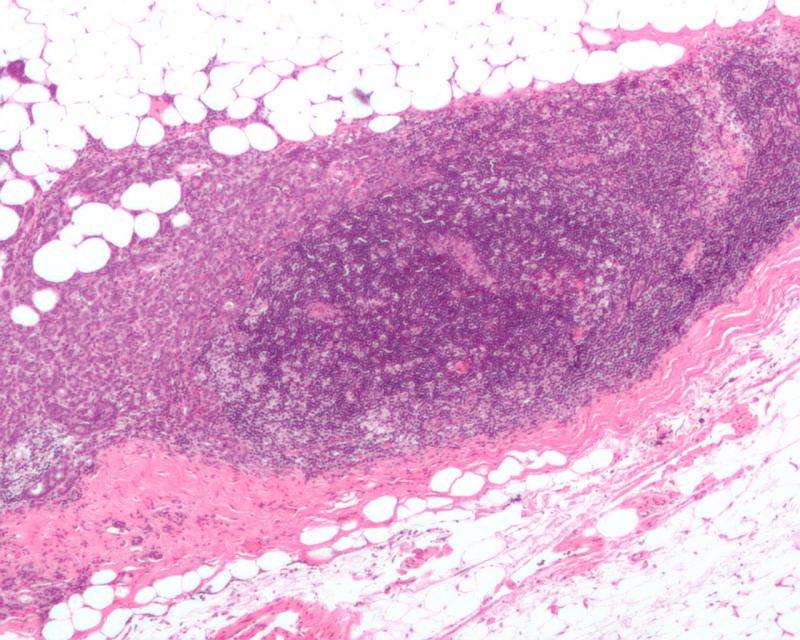ALK1 protein may play a role in breast cancer metastasis

Breast cancer patients with high levels of the protein activin-like receptor kinase (ALK1) in the blood vessels of their tumors were more likely to develop metastatic disease. This makes inhibition of the ALK1 pathway a possible new target for the treatment of metastatic breast cancer.
Pietras said that although prognosis for breast cancer is relatively good when detected in its early stages, metastatic disease is the cause of 90 percent of all cancer-related deaths. Therefore, learning more about the metastatic process and finding new cures to inhibit disease spread is at the center of clinical attention.
He explained that in order for a tumor to spread, a cancer cell must detach and traverse the vascular wall to escape into the blood stream, exit the vasculature to enter the metastatic site, and colonize the new tissue. The fact that the process of escape into and from the vasculature is regulated implies that it is possible to use drugs to block this process, he said.
Pietras and colleagues used multiple mouse models of breast cancer; tumor samples from 768 patients in a population-based, nested case-control study; and breast cancer gene-expression data from The Cancer Genome Atlas, to understand the role of ALK1 in breast cancer metastasis and test an ALK1 inhibitor.
Using multiple mouse models of breast cancer, Pietras and colleagues found that a mouse version of the ALK1 inhibitor dalantercept prevented metastatic dissemination and that combination therapy with dalantercept and the chemotherapy docetaxel was effective in preventing the spread of the primary breast tumor to the lungs.
Next, the researchers analyzed gene-expression patterns in tumors from 768 patients in a population-based, nested case-control study. This analysis showed that expression of ALK1 was significantly associated with the incidence of metastatic disease. In order to further validate their findings, Pietras and colleagues analyzed breast cancer gene-expression data from The Cancer Genome Atlas and found that ALK1 expression correlated with the expression of well-known endothelial markers and that higher levels of ALK1 expression were an independent prognostic factor for poor survival in breast cancer patients.
In an interview, Pietras said, "We are investigating the role of ALK1 protein expressed by endothelial cells in promoting metastatic dissemination from primary breast tumors. Our results suggest that the presence of high levels of ALK1 in the breast tumor vasculature is a prognostic biomarker for metastatic disease. Moreover, our work encourages clinical testing of drugs blocking ALK1 in breast cancer with prevention of metastatic dissemination as the primary outcome. We are currently performing therapeutic studies with dalantercept in models of breast cancer in order to pinpoint the precise therapeutic regimen and disease stage at which the treatment is the most effective."















